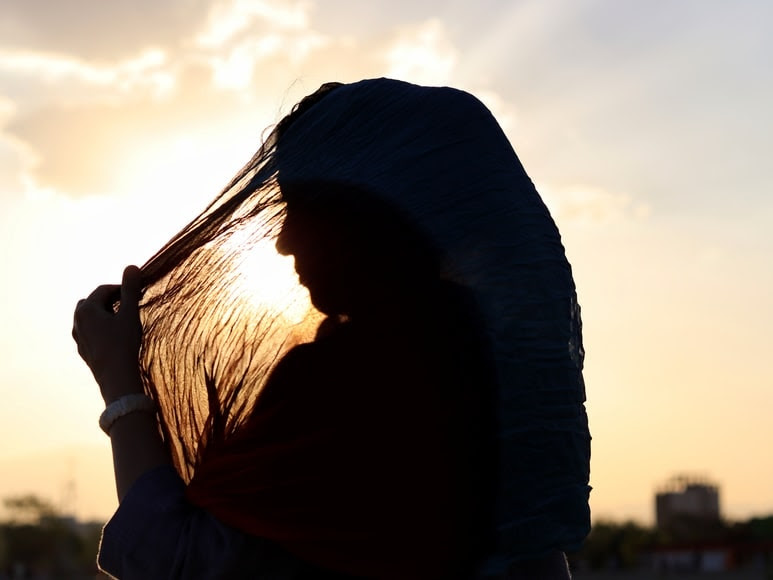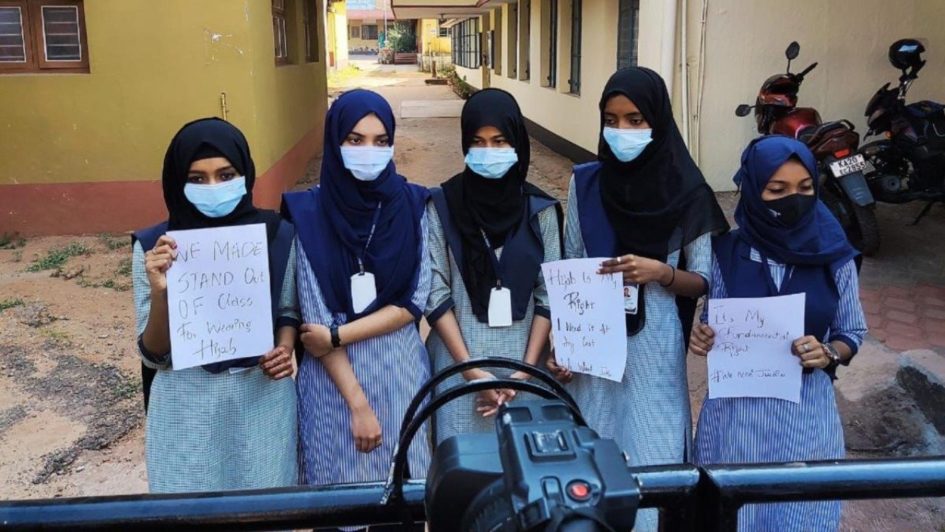Six students have continued to be marked absent since December 31 after being denied entry into their classrooms at the Government Women’s pre-university college in Udupi, Karnataka for their insistence on wearing a hijab.
College principal Rudra Gowda has said the students can wear hijab on the college premises but not inside classrooms. The rule is being followed to ensure uniformity in the classroom, he said.

What the girls want
“We are not allowed to go inside the classroom,” said Aliya Assadi, one of the six students. “One day, we had gone inside the classroom, but the teacher’s response was, ‘If you don’t go out of the class, I will push you out’.”
The students have been sitting outside the classroom, in the college corridors and on the stairs, with their books and bags.
The girls say their choice to wear a hijab is in conformity with their fundamental and constitutional rights. They point out that other students are allowed to wear religious markers like a bindi.
They see communal discrimination by the college as they say they are not allowed to speak in Urdu or say salaam to each other.
But they also worry that their continued absence from classes denies them a right to learn and could lead to a shortfall of attendance requirements for the examinations.
Escalating row
Karnataka’s education minister BC Nagesh has, however, dismissed the controversy as ‘politically motivated’. He said that there were close to 100 Muslim students at the institute but, barring the six, none had insisted on their right to wear hijab.
Some newspapers are reporting that in response to the hijab row, students at two other colleges, a government-run institute in Chikmagalur and Pompei College, Mangaluru, have begun sporting saffron scarves around the necks.
The controversy comes on the heels of continuing online auctions of prominent and outspoken Muslim women that have left an increasing number feeling under siege for the practice of their faith.
It also coincides with an increasing number of women students opting for higher education. The All India Survey on Higher Education 2019-2020 shows an 18% increase over five years in the enrolment rate of women in post-graduate programmes. A nation-wide survey of 74,000 teenage girls by Naandi Foundation found high levels of aspiration, with 70% of girls saying they wanted to pursue higher education and another 74% wanting to work after completing their studies.
On January 19, a meeting was organised between school management, government officials and the students but could not reach a conclusion.
Two days later, a note signed by the principal said the college would be shut for five days until January 26, ostensibly because six students had tested positive for coronavirus.

Leave a Reply